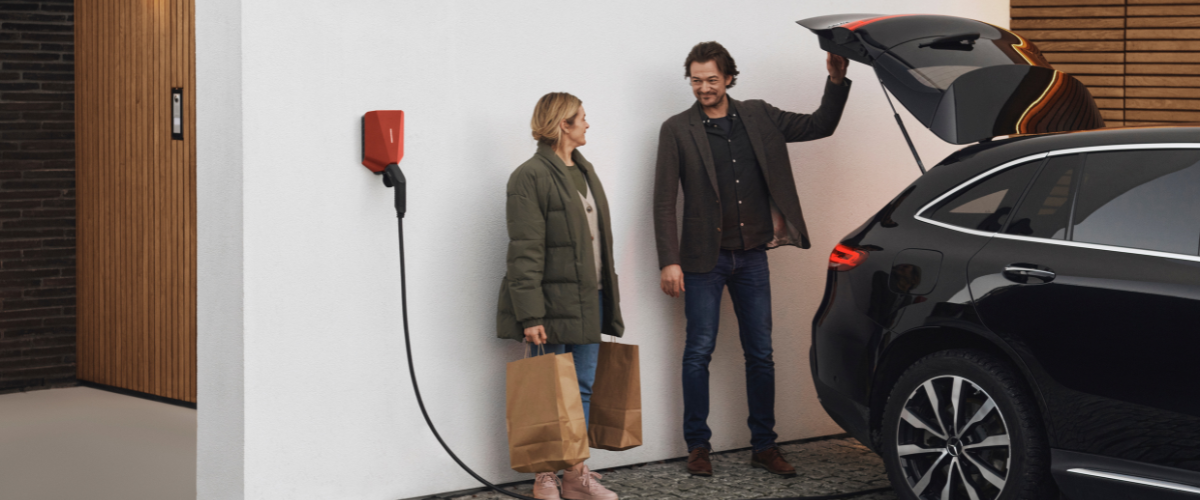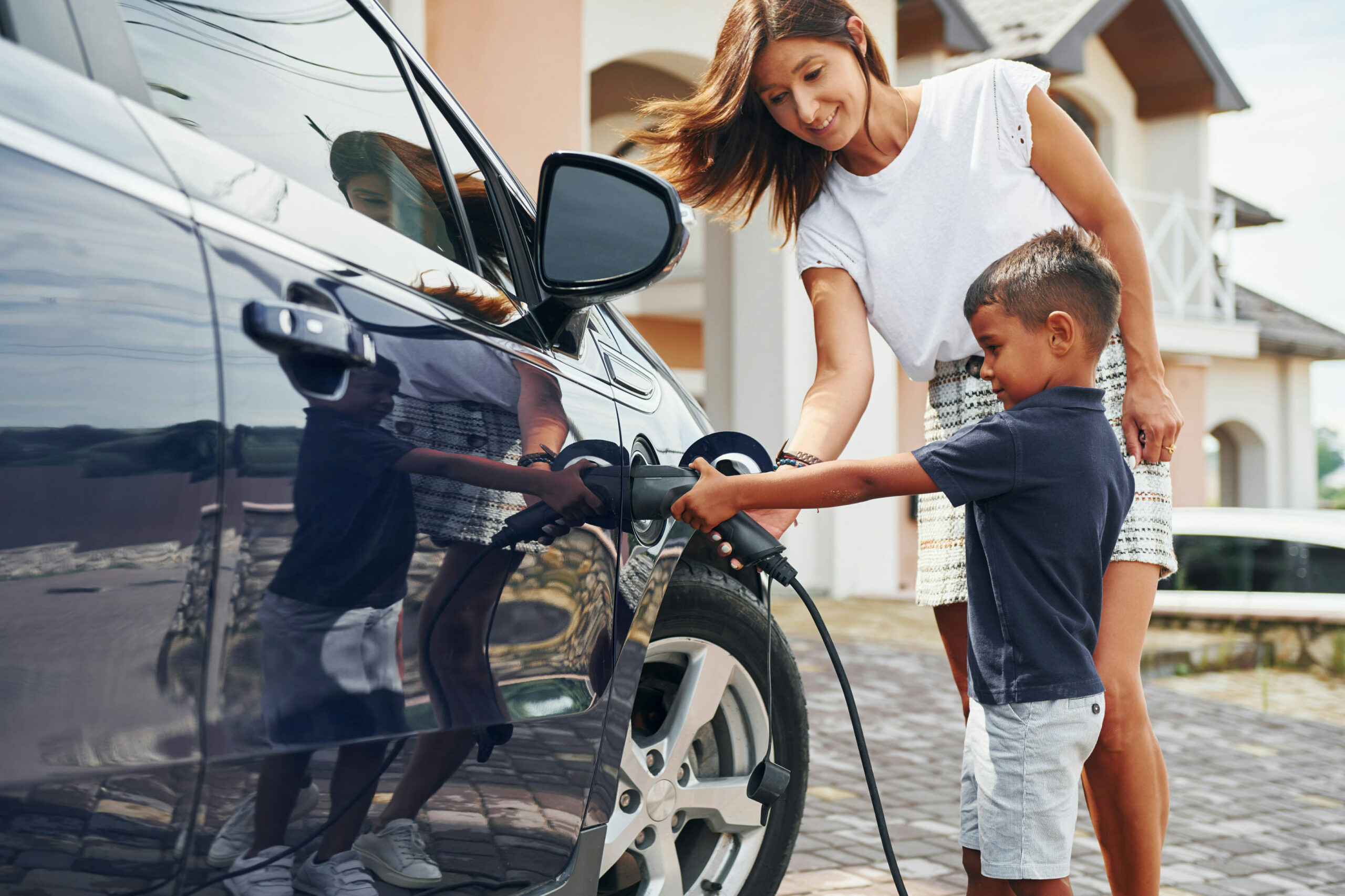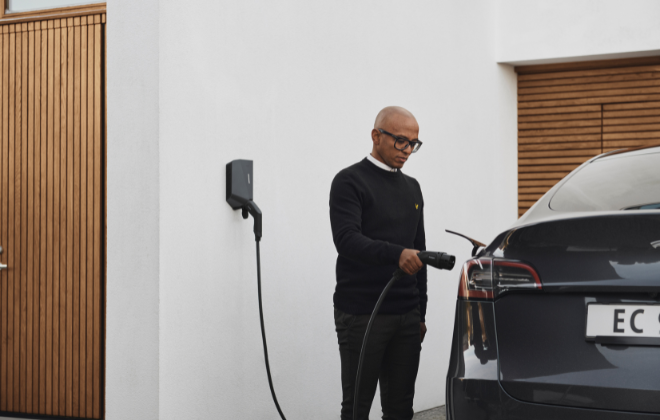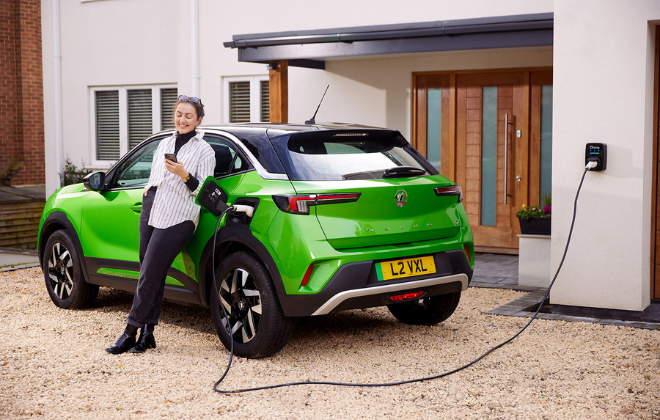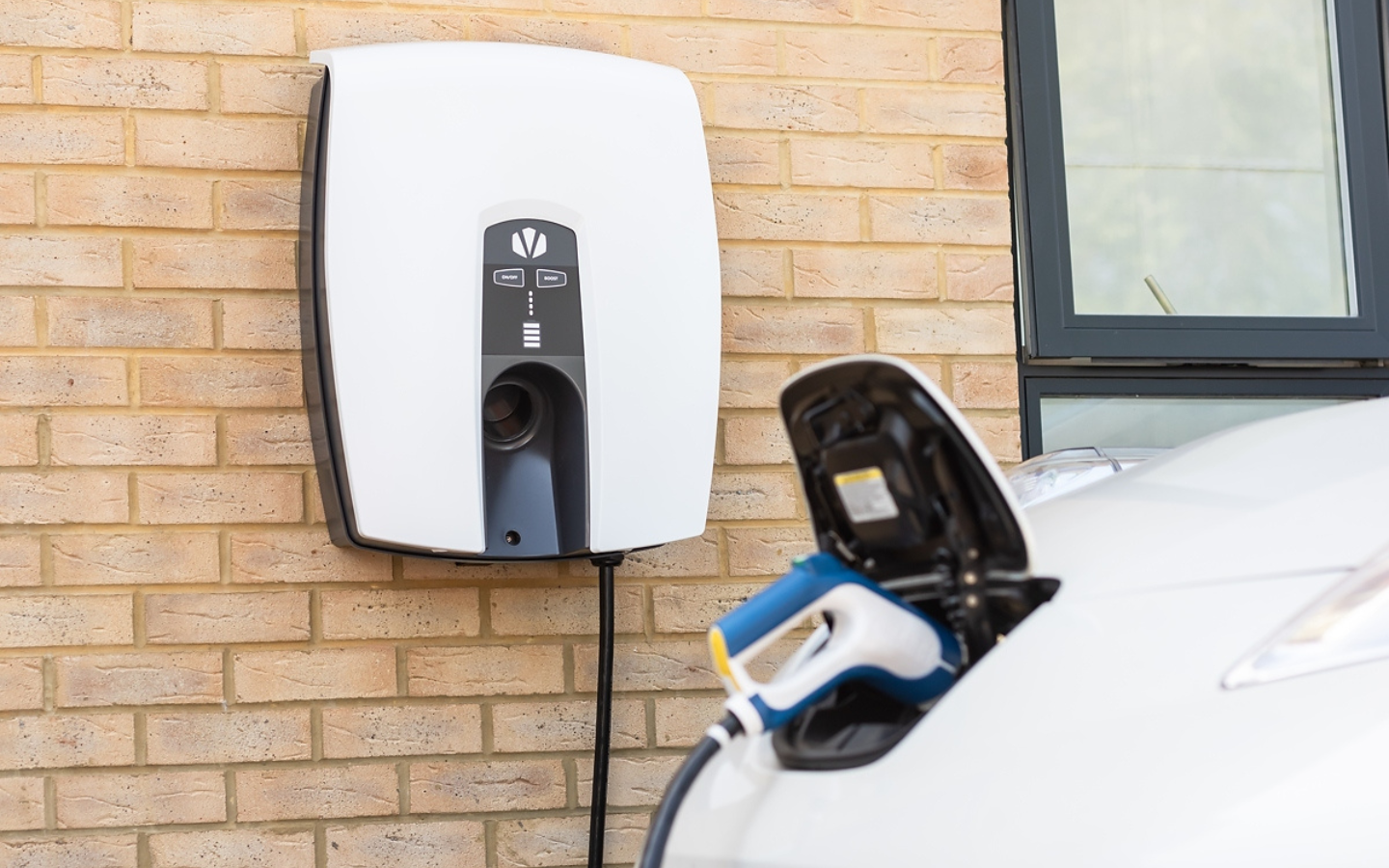
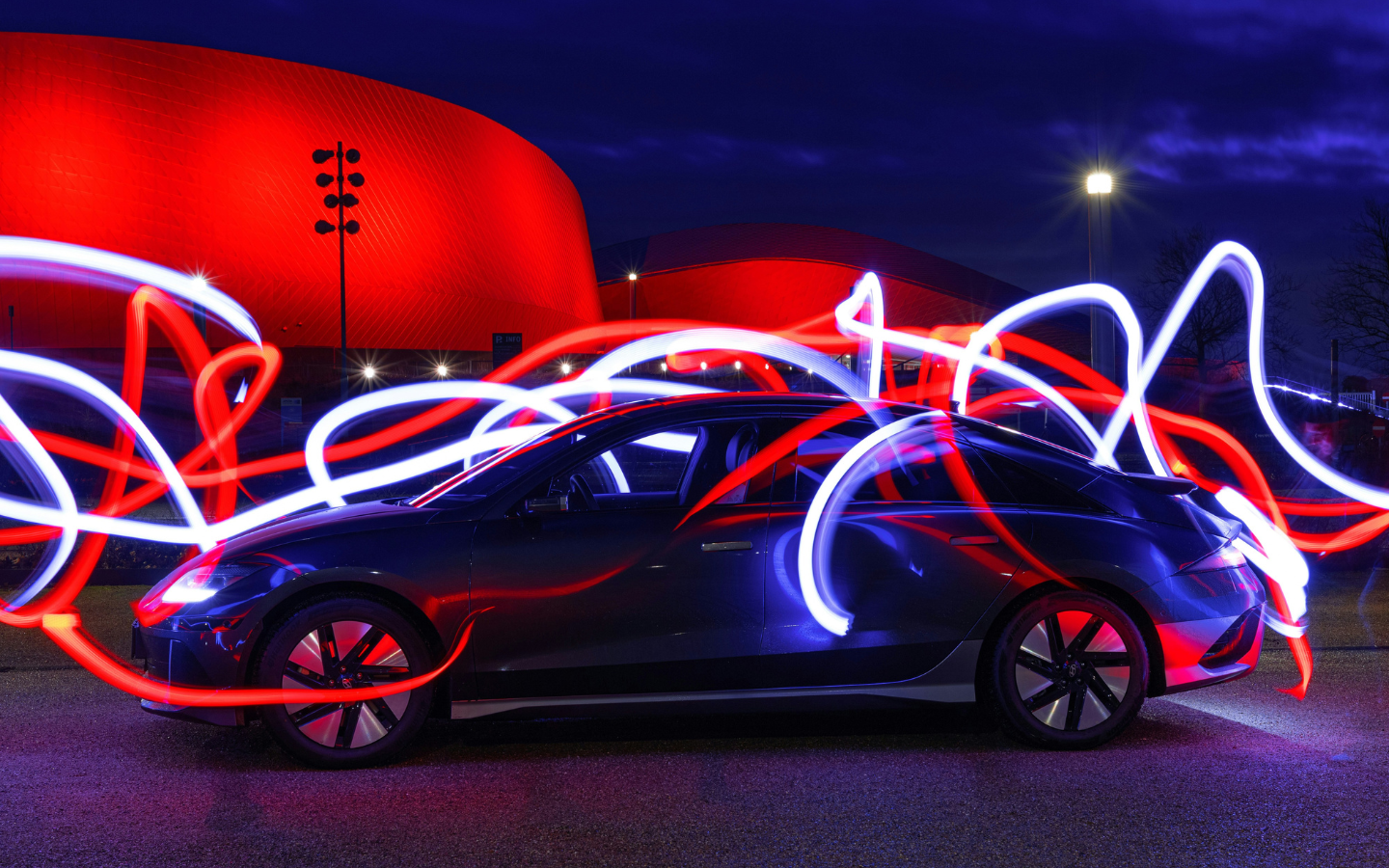
Is it worth buying an electric car now in the UK?
As of the end of June 2025, the UK is charging ahead with 1,550,000 fully electric cars—and counting. Add in the number of car manufacturer portfolios expanding and luxury brands rolling out their first EV models, and it’s clear: all roads are leading to electric.
In fact, buying an electric car in the UK has never been easier. New or old, EVs are occupying large chunks of market share in the automobile landscape.
But, with grumbles surrounding range anxiety, lack of charging infrastructure and the high upfront price of new electric vehicles (EV) on the market, many UK drivers are questioning whether it’s worth buying an electric car in 2025.
Today, we bring you a balanced argument for and against the question on everybody’s tongue: ‘Should you invest in an electric car?’ In addition to answering ‘Is it worth buying an electric car in the UK now?’
Keep reading our buyer’s guide to discover the pros and cons of electric cars. In this article, we help you learn whether an electric car purchase is right for you.
Electric car pros and cons: Is it worth buying an electric car in the UK?
To start, we’ll take you through the electric car benefits:
Pros of electric cars
1. Petrol VS electric – EV cost savings and incentives
One of the most compelling arguments for investing in an electric car in 2025 is the significant cost savings. Financially, EVs are the gifts that keep on giving, bringing savings now and continuing way into the future. Maintenance savings, lower running costs, and government incentives, including decreased road tax and congestion charge exemptions, are just a few of the financial rewards of electric car adoption. For example, as a teaser of the specific cost benefits, did you know you can charge your electric car for as little as 5p per mile, according to the AA?
Of course, the higher initial purchase price of a new EV can often be off-putting compared to a conventional car. However, you can’t snub the substantial long-term savings.
Let’s get into the finer detail.
1. Maintenance savings
Electric vehicles (EVs) need services and MOTs like regular cars to stay safe and roadworthy. However, they have fewer moving parts than traditional cars due to their electric motors. What does this mean? Lower maintenance and repair costs are your reward.
Did you know that EVs are 59% less likely to break down, too?
2. Lower running costs
Historically, battery electric vehicles have been cheaper to charge than petrol or diesel cars (those with combustion engines). Or, at the very least, matched. So, financially, electric cars are worth buying – purely for the savings.
Refuelling with petrol typically costs around 19-21p per mile in the UK. Compare this to how you can save significantly with a home EV charger. For example, with compatible smart chargers and EV tariffs, you can charge for mere pennies. One example is the Intelligent Octopus Go tariff. Charge at just 7p per kilowatt-hour during off-peak hours.
With some hands-on research, you could find free EV chargers near you, too. Supermarkets are your best bet, or ChargePlace Scotland charging points if you’re up north. Take advantage of these free kWhs, which correlate to expensive litres of petrol.
You couldn’t find a free petrol pump, could you?
3. Government incentives
London’s Congestion Charge and the Ultra Low Emission Zone fee are void for EV owners. Some parts of London offer free parking to electric car owners as a special perk, as well. Save money by skipping these additional compulsory fees for petrol/diesel owners.
These potential savings are especially beneficial for those who live in or commute to and from London.
With these government perks in mind, now has never been a better time to make the switch if you want to claim these monetary benefits.
2. Convenience of charging – especially at home
Never worry about making a trip to the petrol station again. Charging your car from the comfort of your own home saves time and money. Simply have a smart EV charger installed at home and manage your charging from your fingertips and front door.
For maximised convenience, set your EV to charge while you re-recharge and wake up with your EV ready to go, charged easily at home.
3. Smooth, silent and smart ride
- Silent: The motors in electric cars provide a quiet, smooth driving experience, free from the noise and vibration of traditional engines. Peace and quiet for the community and you.
- Smooth: With high torque power, EVs provide you with a smooth and speedy pick-up that outstrips petrol and diesel equivalents. Advocates of EVs also comment on the comfort of the ride. Undecided? Take an EV out for a test drive yourself and enjoy the ride.
- Smart: Electric cars often come packed with nifty, advanced technology tidbits. For example, in winter, you can set your EV to pre-heat before you even step foot into your vehicle. You and your vehicle will always be ready on the frostiest of mornings.
4. A greener, cleaner future
The life cycle of a petrol car compared to an electric car is different. Truthfully, EVs produce more CO2 than fossil fuel cars in their early stages of creation—often a point of controversy.
However, the key takeaway is that battery electric cars are zero-emission at the tailpipe. This means they drastically reduce the amount of CO2 in the atmosphere when compared to their petrol and diesel counterparts when driven. Fact. Experts have even said that electric cars have a 50% to 80% better carbon footprint than petrol cars.
You can, therefore, recoup the cleaner air over their lifetime and reduce your carbon footprint. What’s more, in crowded cities, EVs will make a significant difference in air quality. Not to mention a reduction in health problems associated with air pollution, too.
Advancements in EV battery recycling are also in motion.
Potential Cons of Electric Cars
Next, we discuss the potential downsides to electric cars.
1. Initial high cost for new electric cars
Despite the long-term savings, the upfront cost of an electric car is a barrier to EV adoption in the UK. With the removal of the £5,000 plug-in grant for new electric cars in 2022, the problem of the high cost seemingly doubled. For most, new electric cars are simply not accessible – especially for young drivers and those with larger families.
That said, there are other ways to drive an electric car. New is not always better.
For one, salary sacrifice is one of the best ways to reap rewards at a lower cost. Get popular EVs such as the Tesla Model 3 and Nissan Leaf through a company EV scheme. Claim all the benefits of an electric car without the upfront fee.
Another way is through investing in a second-hand electric car. Nowadays, more and more second-hand electric car choices are available to buy – at a fraction of the cost of a new one. Used electric cars are, therefore, a sure-fire way to enjoy the benefits of EVs without the large price tag. In fact, the government states that industry experts suggest that many used electric cars tie in price when compared to petrol and diesel vehicles.
Still prefer that new car smell? Why not try a small electric car? While miniature in stature, they are often significantly cheaper to buy fresh off the market. Plus, you still get all the perks of going electric.
2. The availability of EV charging infrastructure near you
The public charging network in the UK is constantly growing. In fact, according to Zap-Map, there are currently 82,369 charging points across the UK. Find chargers at supermarkets, restaurants, motorways and more.
But be wary – the number of charging points varies depending on your location.
London and the south lead the charge with many accessible, varied charging points. In fact, there are more public chargers in Greater London than in any other area of the UK, with 24,429 chargers on offer. Other places, especially in the North, are more limited in the number and choice of chargers. For example, there are only 4,309 devices in Yorkshire and the Humber.
Villages and rural areas may also be an area of concern for potential electric car drivers. Take into account where you are when making the decision to switch to an EV. Perhaps browse Zap-Map or some of the best EV charging apps to locate nearby EV charging points. These handy apps will help give you a broader overview of how you would charge – if you’re without a home charger, that is.
Try not to worry too much, though. Many local councils are focusing on bridging this charging infrastructure gap. One example is West Northamptonshire Council. Hopefully, charging points will continue to spread across all areas of the UK as councils take more action.
Plus, many workplaces and businesses are recognising the benefits of installing EV charging points for staff and customers, opening up an abundance of new chargers for EV owners.
All in all, with the option of home EV chargers and the ever-expanding EV charging networks, the lack of infrastructure isn’t as much of an issue as it first seems. But it is one to keep in mind.
3. On-street parking installation problems
For some, installing a standard smart EV charger at home is not possible without significant investment.
Those with on-street parking can’t have a normal home charger installed without the help of a cross-pavement charging solution. These solutions include the ChargeArm or the Gul-e.
Often, these new pieces of cross-pavement charging equipment are expensive. In turn, it’s become a point of concern in terms of EV adoption.
Try not to stress about this. The increasing number of public charge points and the creation of new on-street parking solutions each year will eliminate this issue. Recently, the UK government announced a grant to help those with on-street parking get a parking solution installed, too. A generous £350 is available if you are eligible.
But, while we feel this isn’t a be-all-and-end-all, of course, it is a factor for potential EV adopters to consider.
4. Range and charge anxiety
Despite advancements in technology, range anxiety—the fear of running out of charge before reaching their destination —remains a concern in some. Charge anxiety is becoming a real thing now, too. This term is used when EV owners worry that the charger they visit might be broken, there could be a queue, or they might not know how to use it.
Let’s go through some of the reasons drivers fret when it comes to EVs and their batteries:
1. Limited range
Older EVs and smaller electric cars often come with a smaller range when compared to more luxury and larger cars. We understand this is a concern for new EV owners. The reliability of a petrol car and the quick to fuel petrol stations that come with it will be at the back of your mind.
To this, we say try not to worry. Many new EVs have significantly more range than those at the start of the EV era, and this will surely continue in the future. Additionally, 99% of average car journeys in England are 100 miles. Add in the fact that the average EV can go 150 to 300 miles on a single charge, and it’s clear that range isn’t an issue on a day-to-day basis.
While charging times differ, EV chargers with different speeds are available depending on what you need. From fast at home to rapid chargers in public, electric-powered cars are easy to top-up.
2. Battery degradation
It’s no secret – over time, an EV’s battery is likely to degrade. With this, reducing its range and efficiency. Unfortunately, if you buy an EV, this is standard. But battery degradation occurs over long periods of time, and there are ways to mitigate this drop in EV range.
Additionally, EVs legally have to have battery warranties of 8 years or 100,000 at a minimum. So, if your electric car range drops significantly, you have peace of mind that you can use your warranty.
While warranties cover battery replacements, some argue that the hassle and potential cost of replacing the EV battery are worth thinking about.
Is it worth buying an electric car in the UK now? – Conclusion
When it comes to the question – is it worth buying an electric car in the UK now? – the decision between buying an electric car now or waiting is circumstantial. Truthfully, electric cars come with their own pros and cons. And, in our opinion, you should base the decision to switch to an EV on your lifestyle. Consider factors such as the length of your daily commute, your finances, and your location before deciding to switch to an electric vehicle.
That said, electric cars are the future. So, at some point, you will have to buy and drive an EV. Therefore, investing in an electric vehicle now means you can also take advantage of benefits that may otherwise disappear. For instance, unfortunately, the government has ended exemption from road tax for EVs this year.
Additionally, the growing network of public charging stations and ongoing research into extending EV battery range should ease your worries about buying an EV. Especially in the case of range anxiety.
Springboard your electric car savings by investing in a home EV charger today.
If you planning to make the switch to electric, don’t forget about your home EV charger. Faster, safer and more convenient, charging your car has never been easier. Browse our wide range of the best EV chargers on the market today, and find your perfect charging solution.
For the best in class home EV charger installations, trust We Power Your Car. With DBS-checked, experienced and accredited installers across the UK, we can install nationwide – all with first class customer service.
If you want a home EV charger installation, click below to get your free quote, or contact us for more information or any queries you may have.
